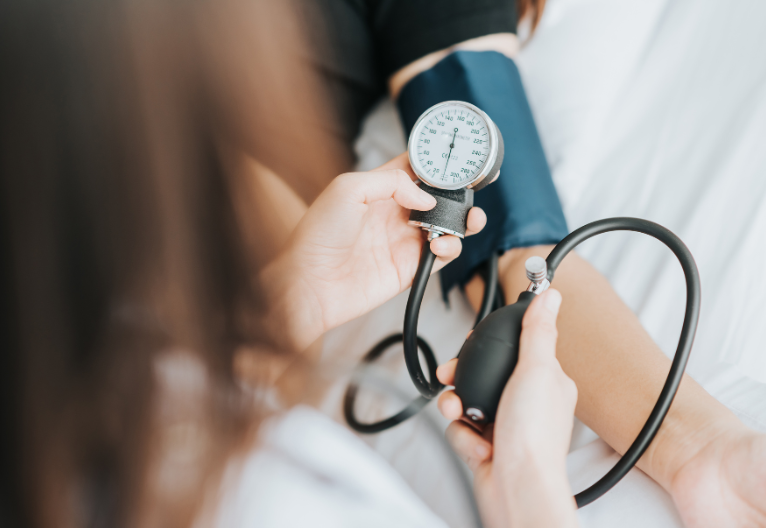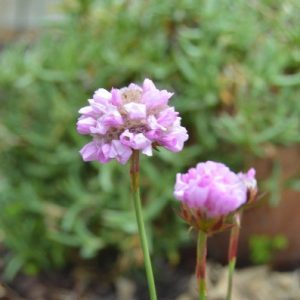Incredibly, more than half of Australians who have high blood pressure don’t even know it. One of Australia’s most beloved Olympians, Dr Lauren Burns explains just how our blood pressure can impact our overall health, particularly our heart.

Dr Lauren Burns PhD OAM OLY made history by winning Taekwondo’s first Olympic gold at the Sydney 2000 Games. A naturopath (BHSc) and award-winning researcher, Lauren holds a PhD in athlete lifestyle and mindset. For 25 years, she has inspired audiences with her engaging presentations, blending her sporting journey, expertise in naturopathy, nutrition, and her doctoral research on Elevating Potential and the Circle of Lifestyle model.
Known for her energy, optimism, and practical applications Lauren is the Wellbeing and Engagement Manager for Combat Australia, and currently works closely with the Australian Institute of Sport, Snow Australia, and Baseball Australia, particularly around her development of the Performance Alliance. She has an adjunct position with Southern Cross University and is on the board of the Jacka Foundation of Natural Therapies (Secretary).

Australians are being urged to focus on a matter below the surface: their blood pressure. Recent research reveals, over 56% of Australians who have hypertension (high blood pressure), are not actually aware they have it1.
Overall, Australia’s management of hypertension (34%) is lagging behind other nations2. With only 40% of people having had their blood pressure checked within the past 12 months3 , it’s time to start taking simple, proactive steps toward a healthier lifestyle. Firstly – getting your blood pressure checked. Following this, there are many lifestyle changes that can have a positive impact on maintaining healthy blood pressure.

Our blood pressure is closely tied to our cardiovascular and vascular function, but behind it all is our mitochondria. These are the “powerhouses” of our cells that generate energy (ATP) and play an important role in supporting cardiovascular health. Mitochondria are fuelled by the body’s natural production of the endogenous antioxidant, ubiquinol. However, ubiquinol levels in the mitochondria start to naturally decline after the age of 20, depleting the energy production in the cells of our body which, in turn, impacts mitochondrial health4.
Recent findings in The Journal of Clinical Hypertension further reinforce this, highlighting how mitochondrial function and oxidative stress, are closely related to the health of blood vessels5.

By leading a healthy lifestyle, we can support our mitochondrial function and our heart health:
Nutrition
Nutrition plays an active role in supporting our overall health. Eating a diverse range of plants and whole foods ensures your body receives a variety of natural compounds that have a positive impact on your body6.
Movement
Daily movement is a powerful tool that can support our healthspan (the years we remain healthy), vitality and quality of life. Movement throughout the day has been proven to support several health mechanisms such as circulation, metabolism and glucose disposal7.
Incorporating exercise into our routine supports our cardiovascular health8 and is effective in managing blood pressure levels9. This can be as simple as going for a daily walk10.
Recovery
Giving our body time to rest and recover is especially important. Emerging science has revealed that sleep can support blood pressure and cardiovascular health11 as well as encourage tissue repair, executive function, and immune function.
We can support our body clock with morning sunlight, a steady routine, calm evenings with low light and a restful sleep space.
Decompress
When our body is stressed, it releases the ‘stress hormone’ cortisol, putting our body in a high alert state12 impacting blood pressure and heart health13. Giving ourselves time to slow down and reconnect with our breath, mind, environment, and others, helps regulate the nervous system and supports cardiovascular function.
A simple daily breathing practice, such as five minutes of slow, diaphragmatic breathing, can lower cortisol, activate the parasympathetic system, and improve vascular tone. These micro-moments of calm build macro-benefits for heart and whole-body health.
Consult your healthcare practitioner for lifestyle and dietary protocols.
- https://pubmed.ncbi.nlm.nih.gov/39248145/ ↩︎
- https://pubmed.ncbi.nlm.nih.gov/39248145/ ↩︎
- https://www.sisuhealthgroup.com/ ↩︎
- San-Millán I. The key role of mitochondrial function in health and disease. Antioxidants (Basel)
2023;12(4):782. ↩︎ - https://pmc.ncbi.nlm.nih.gov/articles/PMC11973128/ ↩︎
- https://pmc.ncbi.nlm.nih.gov/articles/PMC7770496/ ↩︎
- https://link.springer.com/article/10.1007/s40279-022-01649-4 ↩︎
- https://www.heartfoundation.org.au/healthy-living/physical-activity/physical-activity-and-exercise ↩︎
- https://pmc.ncbi.nlm.nih.gov/articles/PMC6159802/ ↩︎
- Hamer M, Chida Y. Walking and primary prevention: a meta-analysis of prospective cohort
studies. British Journal of Sports Medicine 2008;42:238-243 ↩︎ - https://www.sleepfoundation.org/sleep-deprivation/how-sleep-deprivation-affects-your-heart ↩︎
- https://www.health.harvard.edu/staying-healthy/understanding-the-stress-response ↩︎
- https://www.webmd.com/balance/stress-management/stress-level-too-high ↩︎
Do you have your blood pressure checked regularly? Leave us a comment below.





-

-
-
Kindness Matters, NSW
- 02 Dec 2025
👍
0 Likes
-

-
-
BH517760, NSW
- 31 Jul 2025
👍
0 Likes
-

-
-
Cheers to Good Health, NSW
- 31 Jul 2025
👍
0 Likes
-

-
-
BH516382, QLD
- 30 Jul 2025
👍
0 Likes
-

-
-
BellaB, ACT
- 10 Jul 2025
👍
0 Likes
-

-
-
JH1981, WA
- 20 Jun 2025
👍
0 Likes
-

-
-
BH519636, NSW
- 15 Jun 2025
👍
0 Likes
-

-
-
BH517511, SA
- 08 Jun 2025
👍
0 Likes
-

-
-
BH516706, NSW
- 05 Jun 2025
👍
0 Likes
-

-
-
ChiWren, QLD
- 01 Jun 2025
👍
0 Likes
-

-
-
BH519636, NSW
- 01 Jun 2025
👍
0 Likes
-

-
-
BH516570, WA
- 01 Jun 2025
👍
0 Likes
-

-
-
sars_angelchik, TAS
- 29 May 2025
👍
0 Likes
-

-
-
BH516504, VIC
- 28 May 2025
👍
0 Likes
-

-
-
loves_coffee_and_wine, SA
- 23 May 2025
👍
0 Likes
Post a commentTo post a review/comment please join us or login so we can allocate your points.